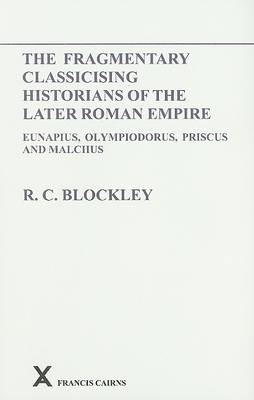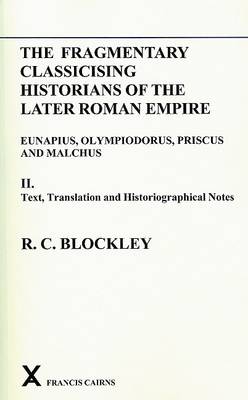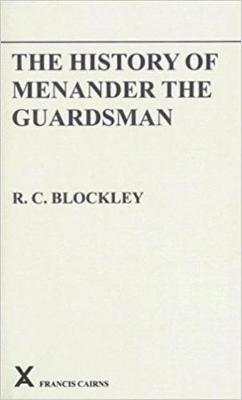ARCA, Classical and Medieval Texts, Papers and Monographs
3 primary works
Book 6
Fragmentary Classicising Historians of the Later Roman Empire, Volume 1
by R. C. Blockley
Published 15 March 2009
This volume constitutes a work of fundamental importance for historians of the period. Part One analyzes the background, opinions, and historiography of each of the four writers, with particular emphasis on recovering from the fragments the original structure of their works. Part Two presents an annotated conspectus, based on close study of all relevant writings, ancient and modern. Reprint of the 1981 edition.
Book 10
Fragmentary Classicising Historians of the Later Roman Empire, Volume 2
by R. C. Blockley
Published 1 December 1983
This volume is the much larger companion to Roger Blockley's similarly-titled monograph, published in 1981 (ARCA 6). The earlier volume gave a commented conspectus of the fragments, and essays on the individual historians. In vol. II the texts themselves are printed, with English translations and historiographical notes. Included also is a correlation of Blockley's order with the older numbering of Mueller, Dindorf and Niebuhr, and indices of names, places, quotations and citations. This work, with the earlier monograph, has become a standard for the increasingly important study of the later Roman Empire.
Book 17
The History of Menander the Guardsman. Introductory essay, text, translation and historiographical notes
by R. C. Blockley
Published 19 October 1985
Almost all of the very little we know of Menander comes from the preface of his History. Having studied the law, Menander did not become an advocate, preferring instead to become a 'man-about-town'. He was saved from this life of degradation by the accession of the poetry and history enthusiast Emperor Maurice, and the rewards that being a writer could now bring. Whether his History was commissioned by the Emperor is not known, but he was certainly given some high-level encouragement. Menander's portrayal of Justin is more even-handed than most, but his approval of Tiberius is much more effusive, especially with regard to his Persian policy. Overall, Menander's main interest seems to have been Roman relations with foreign peoples - Persians and Avars, particularly - and his depiction of the Persian state as being equal to Rome was prophetic, both empires disappearing less than a century after he was writing.


